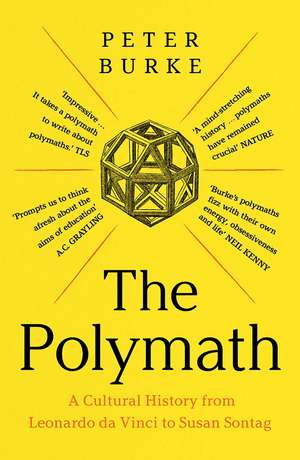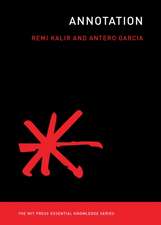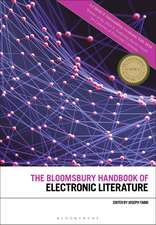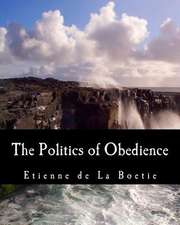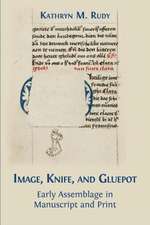The Polymath: A Cultural History from Leonardo da Vinci to Susan Sontag
Autor Peter Burkeen Limba Engleză Paperback – iul 2021
From
Leonardo
Da
Vinci
to
Oliver
Sacks:
the
first
history
of
the
western
polymath,
from
the
Renaissance
to
the
present
"An absorbing group portrait and intellectual history."—Kirkus Reviews
"An admirable mixture of industry and erudition."—Robert Wilson,Wall Street Journal
From Leonardo Da Vinci to John Dee and Comenius, from George Eliot to Oliver Sacks and Susan Sontag, polymaths have moved the frontiers of knowledge in countless ways. But history can be unkind to scholars with such encyclopedic interests. All too often these individuals are remembered for just one part of their valuable achievements.
In this engaging, erudite account, renowned cultural historian Peter Burke argues for a more rounded view. Identifying 500 western polymaths, Burke explores their wide-ranging successes and shows how their rise matched a rapid growth of knowledge in the age of the invention of printing, the discovery of the New World and the Scientific Revolution. It is only more recently that the further acceleration of knowledge has led to increased specialization and to an environment that is less supportive of wide-ranging scholars and scientists.
Spanning the Renaissance to the present day, Burke changes our understanding of this remarkable intellectual species.
"An absorbing group portrait and intellectual history."—Kirkus Reviews
"An admirable mixture of industry and erudition."—Robert Wilson,Wall Street Journal
From Leonardo Da Vinci to John Dee and Comenius, from George Eliot to Oliver Sacks and Susan Sontag, polymaths have moved the frontiers of knowledge in countless ways. But history can be unkind to scholars with such encyclopedic interests. All too often these individuals are remembered for just one part of their valuable achievements.
In this engaging, erudite account, renowned cultural historian Peter Burke argues for a more rounded view. Identifying 500 western polymaths, Burke explores their wide-ranging successes and shows how their rise matched a rapid growth of knowledge in the age of the invention of printing, the discovery of the New World and the Scientific Revolution. It is only more recently that the further acceleration of knowledge has led to increased specialization and to an environment that is less supportive of wide-ranging scholars and scientists.
Spanning the Renaissance to the present day, Burke changes our understanding of this remarkable intellectual species.
Preț: 93.96 lei
Nou
Puncte Express: 141
Preț estimativ în valută:
17.98€ • 18.70$ • 14.84£
17.98€ • 18.70$ • 14.84£
Carte disponibilă
Livrare economică 24 martie-07 aprilie
Livrare express 07-13 martie pentru 23.06 lei
Preluare comenzi: 021 569.72.76
Specificații
ISBN-13: 9780300260465
ISBN-10: 0300260466
Pagini: 352
Ilustrații: 22 color illus.
Dimensiuni: 127 x 197 x 27 mm
Greutate: 0.34 kg
Editura: Yale University Press
Colecția Yale University Press
ISBN-10: 0300260466
Pagini: 352
Ilustrații: 22 color illus.
Dimensiuni: 127 x 197 x 27 mm
Greutate: 0.34 kg
Editura: Yale University Press
Colecția Yale University Press
Recenzii
"An
absorbing
group
portrait
and
intellectual
history."—Kirkus
Reviews
“An absorbing and polymathic account of an important intellectual species. This is a significant and timely book, because in illustrating why our culture needs polymaths as well as specialists it prompts us to think afresh about the aims of education and what we need to better inform our public conversation.”—A. C. Grayling
“As well as illuminating general patterns, Burke’s polymaths fizz with their own energy, obsessiveness, and life.”—Neil Kenny,author ofThe Uses of Curiosity in Early Modern France and Germany
"The author and his subjects undoubtedly inhabit a shared world, which Burke explains to the rest of us with remarkable insight and understanding, providing both historical depth and remarkable cross-disciplinary breadth.”— Paul Duguid, co-author ofThe Social Life of Information
“In this kaleidoscopic account, Peter Burke unfolds the amazing stories of “monsters of erudition,” tracing the fate of the universal thinker in a world flooding with information.”— Daniel Rosenberg, co-author ofCartographies of Time
“An absorbing and polymathic account of an important intellectual species. This is a significant and timely book, because in illustrating why our culture needs polymaths as well as specialists it prompts us to think afresh about the aims of education and what we need to better inform our public conversation.”—A. C. Grayling
“As well as illuminating general patterns, Burke’s polymaths fizz with their own energy, obsessiveness, and life.”—Neil Kenny,author ofThe Uses of Curiosity in Early Modern France and Germany
"The author and his subjects undoubtedly inhabit a shared world, which Burke explains to the rest of us with remarkable insight and understanding, providing both historical depth and remarkable cross-disciplinary breadth.”— Paul Duguid, co-author ofThe Social Life of Information
“In this kaleidoscopic account, Peter Burke unfolds the amazing stories of “monsters of erudition,” tracing the fate of the universal thinker in a world flooding with information.”— Daniel Rosenberg, co-author ofCartographies of Time
Notă biografică
Peter Burke is emeritus professor of cultural history at Cambridge University. He is the author of many distinguished books that have been translated into more than thirty languages.
Descriere
From Leonardo Da Vinci to Oliver Sacks: the first history of the western polymath, from the Renaissance to the present
"An absorbing group portrait and intellectual history."—Kirkus Reviews
"An admirable mixture of industry and erudition."—Robert Wilson, Wall Street Journal
From Leonardo Da Vinci to John Dee and Comenius, from George Eliot to Oliver Sacks and Susan Sontag, polymaths have moved the frontiers of knowledge in countless ways. But history can be unkind to scholars with such encyclopedic interests. All too often these individuals are remembered for just one part of their valuable achievements.
In this engaging, erudite account, renowned cultural historian Peter Burke argues for a more rounded view. Identifying 500 western polymaths, Burke explores their wide-ranging successes and shows how their rise matched a rapid growth of knowledge in the age of the invention of printing, the discovery of the New World and the Scientific Revolution. It is only more recently that the further acceleration of knowledge has led to increased specialization and to an environment that is less supportive of wide-ranging scholars and scientists.
Spanning the Renaissance to the present day, Burke changes our understanding of this remarkable intellectual species.
"An absorbing group portrait and intellectual history."—Kirkus Reviews
"An admirable mixture of industry and erudition."—Robert Wilson, Wall Street Journal
From Leonardo Da Vinci to John Dee and Comenius, from George Eliot to Oliver Sacks and Susan Sontag, polymaths have moved the frontiers of knowledge in countless ways. But history can be unkind to scholars with such encyclopedic interests. All too often these individuals are remembered for just one part of their valuable achievements.
In this engaging, erudite account, renowned cultural historian Peter Burke argues for a more rounded view. Identifying 500 western polymaths, Burke explores their wide-ranging successes and shows how their rise matched a rapid growth of knowledge in the age of the invention of printing, the discovery of the New World and the Scientific Revolution. It is only more recently that the further acceleration of knowledge has led to increased specialization and to an environment that is less supportive of wide-ranging scholars and scientists.
Spanning the Renaissance to the present day, Burke changes our understanding of this remarkable intellectual species.
